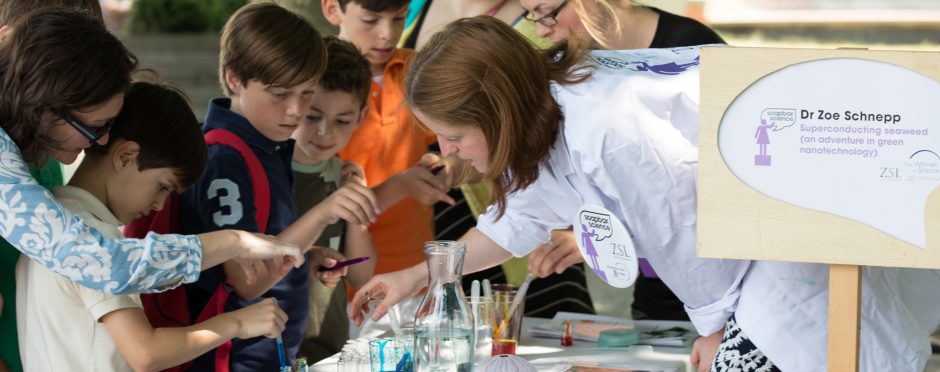 On the 9th of July from 12-3pm Reading’s busy shopping streets will be the setting for Soapbox Science’s second “Environmental Science Special” event. Scientists from an array of environmental disciplines will be talking to the passing audience about some of the projects and ideas they have worked on to better understand and improve our Planet. Talks from the day will include: air pollution, environmental forensics and water contamination – A truly special event and one not to be missed.
On the 9th of July from 12-3pm Reading’s busy shopping streets will be the setting for Soapbox Science’s second “Environmental Science Special” event. Scientists from an array of environmental disciplines will be talking to the passing audience about some of the projects and ideas they have worked on to better understand and improve our Planet. Talks from the day will include: air pollution, environmental forensics and water contamination – A truly special event and one not to be missed.
Details of the location and timing of the event
Address: 7-8 Broad St, Reading RG1 2BH (or outside the Sainsburys)
Time: 12 – 3pm
Sponsor
 This event is sponsored and co-organised by the Institution of Environmental Sciences (IES), a charitable and membership organisation promoting and raising public awareness of environmental science. The IES exists to support professional scientists and academics working in the environmental sector and are always looking for ways to promote equality amongst their members and this sector. The IES is proud to sponsor this Soapbox Science – Environmental Special.
This event is sponsored and co-organised by the Institution of Environmental Sciences (IES), a charitable and membership organisation promoting and raising public awareness of environmental science. The IES exists to support professional scientists and academics working in the environmental sector and are always looking for ways to promote equality amongst their members and this sector. The IES is proud to sponsor this Soapbox Science – Environmental Special.
Speakers
The 12 speakers for this Soapbox Science – Environmental Special, and their discussion topics, include:
Dr. Emily Lines, Queen Mary University of London “Forecasting the future of forests”
Nakiru Betty Flora, University of Sussex “Climate change and drought – how to maximise usage of limited water”
Ms Amanda Zillig, Atkins “What lies beneath – exposing contaminated land risks in exposed ground”
Dr Joanna Bagniewska (@JMBagniewska), University of Reading “How Disney & Science don’t always go hand in hand”
Ms Patricia Tumwine, Arup “You Poo Too – an introduction to the Thames Tideway Tunnel Project”
Kathryn Woolley, Hilson Moran “How I create air pollution”
Dr Victoria Hilborne, London South Bank University “Contamination of water with drugs and their metabolites”
Ms Kirstie Scott, University College London “Environmental forensics: fighting crime with mud, bugs and plants!”
Dr Manuela Gonzalez-Suarez (@MGS_tweets), University of Reading “The problems of having a big brain and other things that increase extinction risk”
Dr Lydia Cole (@lydcole), University of Oxford “Peanut butter, palm oil and peat”
Ms Erika Degani (@erikadegani), University of Reading “Food security: how can biodiversity help?”
Kate Harrington, Environmental Consultant/Ecologist at Arup “Bringing wildlife into cities – an ecologists approach to development”
Discover our 2016 speakers
[print_gllr id=2564]

